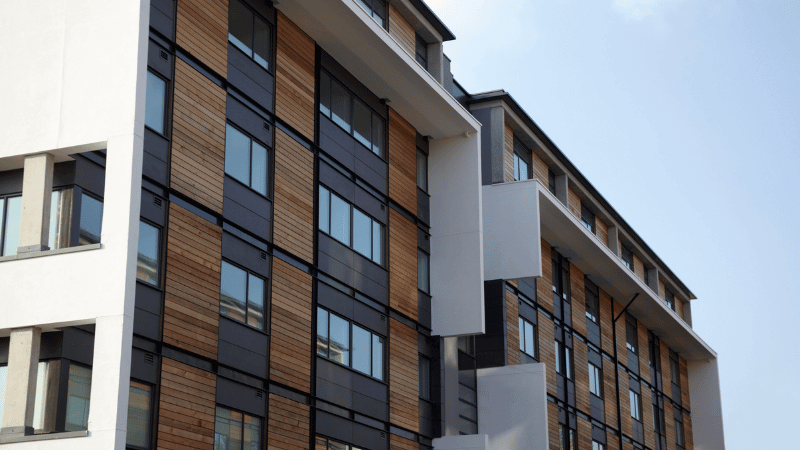Categories
NEWS: Landlords Are Improving EPC on Rental Properties – Here's Why

Over one third of landlords are improving the EPC on rental properties, despite last year's U-turn in legislation for greener buy-to-lets.
Research by Paragon’s Portfolio Landlord Report 2024 has revealed that almost 4 in 10 (37%) portfolio landlords plan to upgrade their properties to EPC C or above, despite the proposed EPC regulations being scrapped by the Government.
Additionally, nearly one-third of portfolio landlords exclusively own properties rated EPC C or above.
However, some landlords are more hesitant to upgrade their properties now that it’s no longer mandatory. Over 16% of landlords stated that they won’t be undertaking any work until legislation mandating EPC C or above is introduced. And the data showed that 1 in 10 stated that the proposed rule change had no bearing on their portfolio strategy.
The study found that 37% of "portfolio landlords" – those with several properties – are going ahead with plans to upgrade their homes to an Energy Performance Certificate (EPC) rating of C or higher. Another 32% already have properties meeting this standard.
Of those making improvements, many have different timelines. Around 28% think they'll hit the target within one to two years, while 22% believe it will take three to four years. A smaller group, 18%, hope to finish within the next 12 months, while 17% expect the improvements to take over five years.
The research surveyed almost 400 landlords who own at least four properties. The questions came after Prime Minister Rishi Sunak announced that proposed changes to energy efficiency standards would be dropped. These changes would have required all new rental properties to have a minimum EPC rating of C by 2025, extending to all rentals by 2028.
Government data shows that, surprisingly, buy to lets now perform better in energy efficiency compared to owner-occupied homes. Nearly 45% of rental properties have an EPC rating of A-C, compared to 43.3% of owner-occupied homes.
The number of rental properties with these higher ratings has risen significantly, from 830,000 in 2012 to 2.18 million in 2022, according to the Paragon’s research.
See similar: Getting an Airbnb Mortgage - Everything You Need to Know

Skip to:
Why Are Landlords Still Making Improvements?
EPC on Rental Properties - A Bit of Background
EPC stands for Energy Performance Certificate. It's a document that shows the energy efficiency rating of a property, with ratings ranging from A (most efficient) to G (least efficient). The EPC includes information about the property's energy usage and typical energy costs, as well as recommendations for improving its efficiency.
The proposed EPC changes referred to in the news involve regulations that the government was considering implementing to improve the energy efficiency of rental properties in the UK. These changes would have required all rental properties to achieve a minimum EPC rating of C by a certain deadline, initially set for 2025 for new tenancies and later extended to cover all rental properties by 2028.
However, the government decided to scrap these proposed regulations, leading to uncertainty among landlords about whether they should still invest in upgrading their properties to meet these standards. Despite the government's reversal, many landlords are still choosing to make their properties more energy efficient, as highlighted in the recent research by Paragon Bank.
Related: How to Convert a Buy to Let to an HMO
Why Are Landlords Making EPC Improvements if They Don’t Have to?
There is an increasing demand from tenants for energy-efficient properties. Tenants are becoming more environmentally conscious and are looking for homes that are energy efficient, which can help them save on energy bills.
Even though the proposed regulations have been scrapped for now, there is still a possibility that similar regulations could be reintroduced in the future. Landlords who invest in improving the energy efficiency of their properties now are preparing for potential future requirements and avoiding the need for costly upgrades later.
Upgrading the energy efficiency of a property often involves making improvements such as installing better insulation, upgrading heating systems, and using energy-efficient appliances. These upgrades can also improve the overall condition of the property and increase its market value.
Providing energy-efficient homes can improve tenant satisfaction and retention. Tenants are more likely to stay longer in a property that is comfortable, has lower energy bills, and provides a healthier environment.
And obviously, if you provided bills-included tenancies, then investing in energy-efficient improvements have the potential to save you money over time.
Related: How to Get a Bridging Loan to Buy, Refurbish and Sell a House

Finance Your Next EPC Improvements
At Clifton Private Finance, we can facilitate refurbishment finance via a number of specialist lenders across the entire short-term market. Loans of this kind are typically only available from private and specialist lenders, which can be difficult to approach directly without a broker. We can ensure you get to the right lender for your property project and get the best possible rates.
We can get you a decision in principle quickly, whether you’re looking to improve your current property to keep up with the government’s changes or invest in one that needs work.
With our expertise and depth of knowledge, we can find you an appropriate lender with favourable rates.
Call us on 0117 205 4834 or book a free consultation below.











